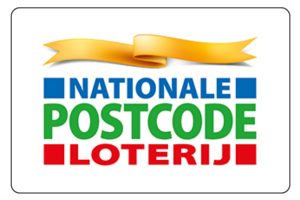February 23, 2021
Survivor and SEMA member Vasfije elected to Kosova Paliament
On 14 February 2021, Vasfije Krasniqi, a member of SEMA and survivor of conflict-related sexual violence from Kosova, was elected to the national parliament of Kosova*.
In the 22 years since the end of the war in Kosova, Vasfije feels “justice for victims has not been the priority of the country”. Vasfije felt participating in parliament will help her bring her fight for justice and human rights to the attention of the nation. She joined the political election for the “common good”, to bring justice to Albanian victims of the Kosova war and raise awareness to the importance of eradicating conflict-related sexual violence and crimes against humanity.
The Mukwege Foundation spoke to Vasfije Krasniqi on 22nd February, after it was confirmed that she had officially secured a seat at the parliament in Kosova.
- What inspired you to run as a member of the Assembly of the Republic of Kosova?
To tell you the truth I never imagined myself running for a seat at the parliament in Kosova but once I started getting into political parties I started wondering what this could mean to me and to the other survivors. I thought long and hard about this and realised there’s no better place to achieve my goals than becoming a lawmaker and making a difference in my mission to seek justice for survivors and fight for human rights. This happened all of a sudden and I decided to join the party and run to become a member of parliament in Kosova.
- As a survivor, what does this victory mean to you?
It means that the people in Kosova are ready to listen to our needs as wartime survivors and are finally ready to make a change.
- In what way have other survivors inspired and/or encouraged you to embark on this journey?
Every survivor I have spoken with in Kosova wanted more support from our country and I hope to be the one to make a few changes regarding the law that has passed in 2014 where survivors are entitled to a pension of 230€ a month, as compensation for their suffering. For most survivors this is not enough for their daily living. I would like to implement a law that gives adequate benefits to survivors.
- What part has SEMA played in developing your leadership goals?
I would not be where I am today without SEMA, the global network of victims and survivors to end wartime sexual violence. They have given me courage to fight for justice, not only for my case but for other survivors around the world. They have put faith and courage in me to take my fight to a bigger place, such as the parliament. Now, I don’t see myself as a victim but rather a survivor and a leader for others to follow.
- What would you like to tell survivors around the world who dream of running for office in their own countries?
First of all, fine leaders are those who are willing to hear you out and not just listen. We (survivors) want to be heard. Never think less of yourself or let others tell you otherwise. There was a point where we were helpless but now we can show our perpetrators that they had power over us for a while but now we are resilient and no one can stop us. We have to fight for justice and for our future generation so that they don’t go through what we had to go through. We have to fight for ourselves and what we need most and not let others speak on our behalf.
I would like to thank KRCT and the SEMA Network for giving a voice to survivors and empowering them to feel that they are capable of taking part in elections. Survivors will have a strong voice in the parliament in Kosova!
*Vasfije prefers the national name Kosova in lieu of Kosovo
Find out more about the work of the SEMA Global Network.
















